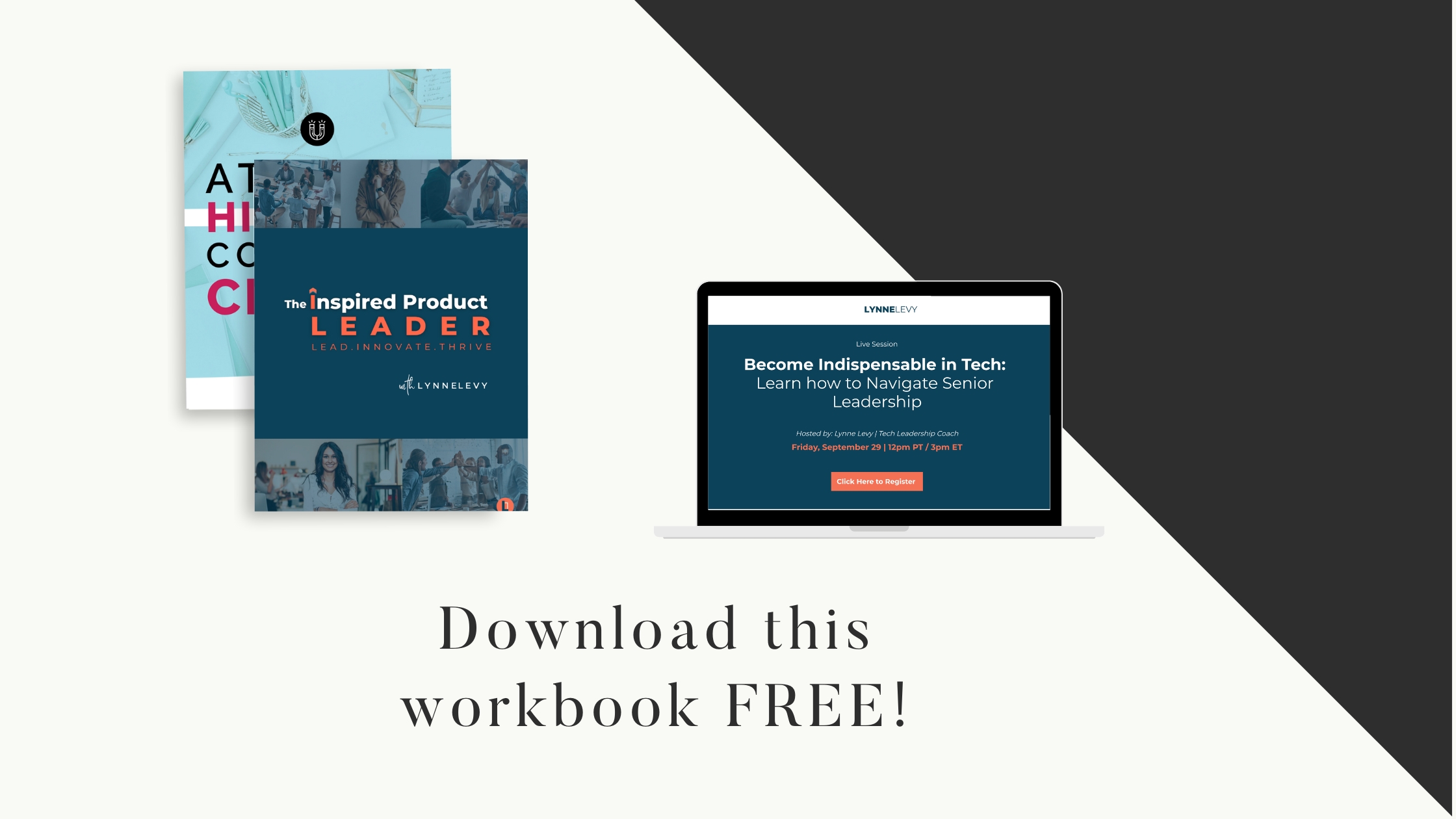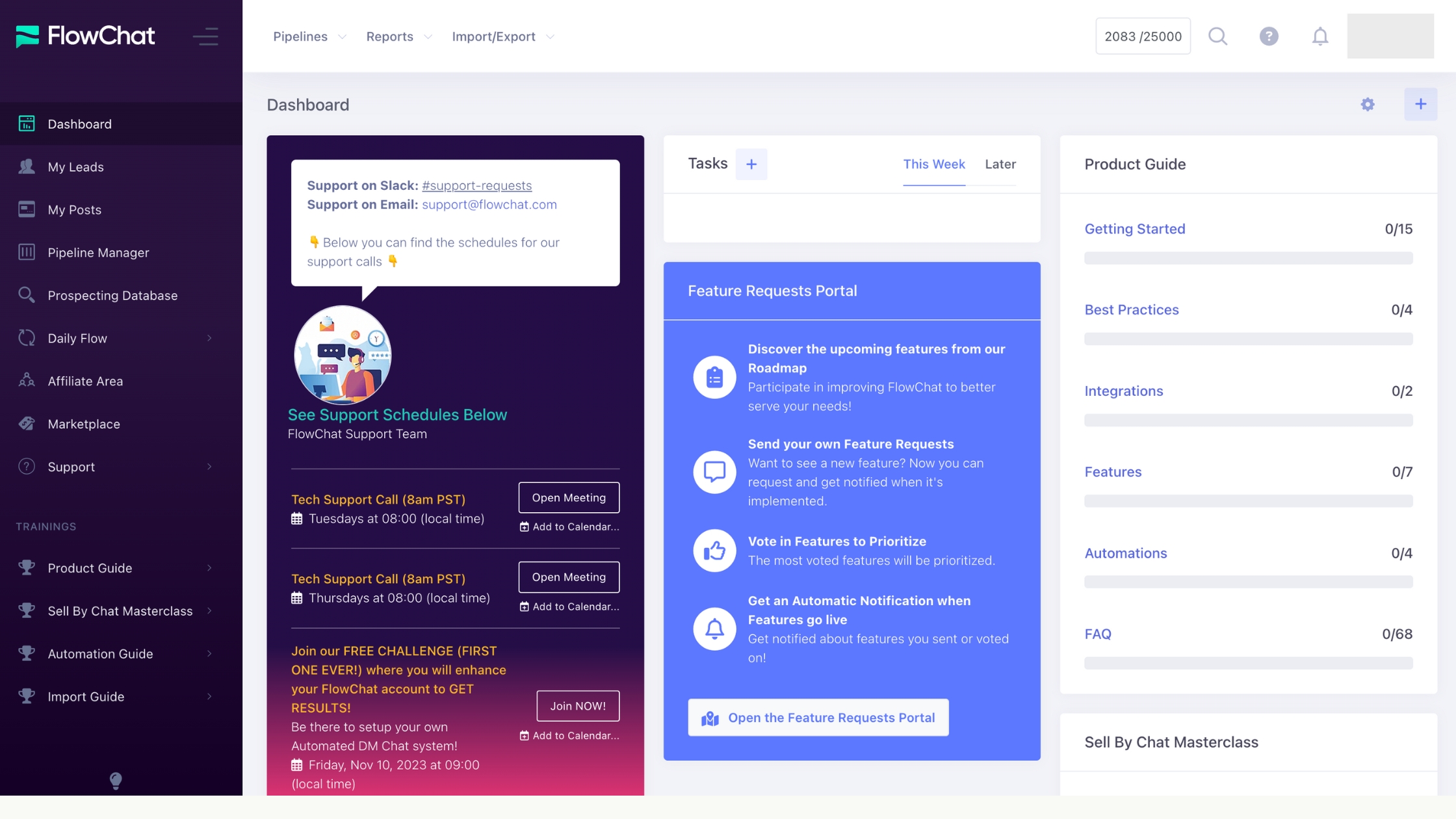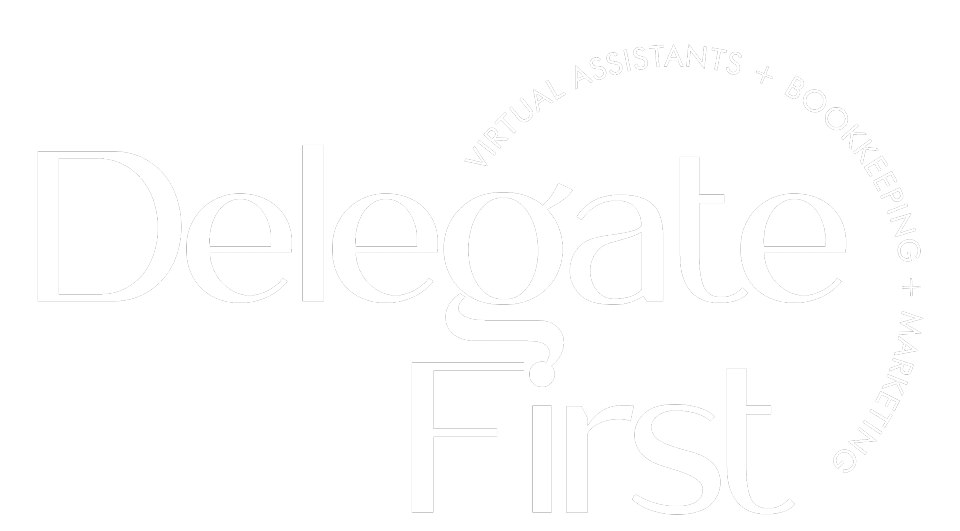As a business coach, hiring an appointment setter can be one of the best decisions you make to grow your business. But what exactly is an appointment setter?
An appointment setter is a person who arranges meetings on behalf of a company or individual, usually through DMs, emails, phone calls, cold calling, or other forms of communication.
In this post, we'll dive deeper into the role of an appointment setter and explore why every business coach should consider having one to promote their high-ticket offer.
What is a High Ticket Appointment Setter?
A high-ticket appointment setter is a person who specializes in setting appointments for high-value products or services. These can include coaching programs, consulting services, masterminds, or other high-ticket offers.
They are not just about scheduling; they are skilled in sales and can effectively communicate the value of your offer to potential clients. Their goal is to generate qualified leads and schedule appointments with individuals who will very probably purchase your high-ticket offer.
Comparing Appointment Setting and Outbound Lead Generation
Appointment setting focuses on creating personalized discussions between your sales team and prospects, with the primary goal of advancing the sales process of high-value offerings. It goes beyond merely filling a daily calendar; it's about nurturing meaningful interactions with genuinely interested potential clients for your coaching or consultancy services.
In contrast, outbound lead generation targets a broader audience to identify potential leads for your coaching endeavors. While it generates a wide pool of prospective clients, it lacks the immediate, personalized touch of appointment setting. The main focus is on capturing numerous leads and guiding them through the sales funnel toward a more personal connection.
The Sales Team (Closers) and Appointment Setters
Appointment setters play a crucial role in connecting potential clients to your sales team. They are responsible for reaching out to leads and booking appointments, enabling closers to focus on presenting your high-ticket programs and ultimately securing deals.
To build a successful sales team, it's vital to understand the differences between these two roles and how they complement each other.
Appointment setters are skilled in:
- Building rapport and initiating conversations with prospects
- Qualifying leads and making appointments
- Identifying pain points and scheduling relevant solutions
In contrast, closers specialize in:
- Presenting tailored solutions for the unique needs of the prospective customers
- Addressing any concerns or objections to your product or service
- Demonstrating how you can solve a client's problem with your offerings
- Negotiating terms and closing deals

What are the responsibilities of an appointment setter?
The main responsibility of an appointment setter is to schedule appointments with potential clients for your high-ticket offer.
This includes identifying and qualifying leads, making first contact with prospect clients, and setting up appointments based on your availability. Some additional responsibilities of an appointment setter may include:
Handling administrative tasks:
Some of the administrative tasks that an appointment setter may handle include managing schedules, coordinating with other team members, sending reminders, and following up with clients.
Qualify prospects
An appointment setter is responsible for qualifying leads and ensuring that only the most qualified prospects are scheduled for appointments. This saves time and effort for both you and your closers.
Build relationships with prospective clients
Appointment setters are usually the first point of contact. They play a pivotal role in building relationships with a potential client, ensuring a positive first impression and a foundation of trust.
CRM and Sales Pipeline Management:
An appointment setter often uses Customer Relationship Management (CRM) systems to stay organized. They update lead information and ensure everything is streamlined for the sales team.
Tracking sales data:
An efficient appointment setter will also keep track of essential sales data, like conversion rates, which can help evaluate and adjust strategies accordingly.

Skills of an Appointment Setter
When you're ready to hire the right person as an appointment setter for your organization, here are some essential skills to look for:
Excellent communication skills
Strong organizational and time-management abilities
Relationship-building skills
Ability to handle rejection and stay motivated
Flexibility and adaptability to changing situations

Why Business Coaches Need Appointment Setters
As a business coach, you may not have the time or resources to reach out to prospective clients and schedule appointments while also delivering your coaching services. An appointment setter assumes that responsibility, allowing you to focus on what you do best - coaching.
Moreover, with their specialized skills in sales and lead generation, an appointment setter can increase the number of qualified leads for your high-ticket offer, resulting in a higher conversion rate and increased revenue for your company.
The Process
The procedure an appointment setter employs can vary. However, some general steps include:
Identifying ideal clients: A successful appointment setter will first identify the ideal target audience for your high-ticket offer.
Creating the scripts: The next step is to craft an effective script that clearly communicates the value of your offer and entices prospective clients to schedule an appointment. A good appointment setter will use your voice and customize the script to fit your brand. You can also use your own scripts if you have a proven track record of success.
Setting up the CRM and pipeline: The appointment setter will set up the CRM system and organize the sales pipeline to ensure that everything is running smoothly.
Making initial contact: With the scripts and CRM set up and a curated list of potential clients from targeted lead generation, the appointment setter will initiate contact through phone, email, or social media.
Qualifying leads: The goal here is to identify prospective clients who are genuinely interested in your offer and qualify them based on their needs and budget.
Booking appointments: Finally, the appointment setter will schedule appointments based on your availability and follow up with reminders as needed.

Challenges in Appointment Setting in the Sales Process
An appointment setter may face some challenges in the sales process, including:
Handling objections: Potential clients may have objections or concerns that need to be addressed before they agree to scheduling an appointment.
Rejection: Not every lead will convert into a scheduled appointment, and an appointment setter must handle rejection effectively.
Time management: With multiple leads and appointments to manage, time-management can be a challenge for an appointment setter.
AI vs. Human Touch: While AI tools can help with lead generation and scheduling, they may lack the personal touch and relationship building aspect that a human appointment setter can offer. Our recommendation is to embrace the use of technology while also recognizing the importance of human connection in the sales process.

How can you use lead magnets to attract and nurture prospects?
Lead magnets are valuable offers that companies use to attract potential clients and capture their contact information. This can include free resources, webinars, or exclusive access to a service. Here's how you can use lead magnets in your appointment setting process:
Offer a Free Consultation
One of the most effective lead magnets is offering a complimentary consultation. This isn't just a casual chat; it's a substantial opportunity for potential clients to experience firsthand the value you bring to the table.
By offering this consultation, you allow them to dip their toes in the water before committing fully. Not only does it showcase your expertise, but it also serves as a filter, helping your appointment setter determine if they are the right fit for your services.
To maximize the effectiveness of this strategy, ensure that the offer is seamlessly integrated into your appointment setting scripts.
Consistently Deliver Valuable Content
To maintain momentum and stay at the forefront of your audience's minds, consistently produce high-quality content. This can take the form of insightful PDF guides, ebooks, engaging webinars, or any other medium that resonates with your audience. Regularly providing valuable content serves two pivotal purposes for your brand:
Builds Your Reputation: When leads consistently receive quality material from you, it enhances your credibility. Over time, they begin to see you as an authority in your niche, which increases their trust in your high-ticket offers.
Re-engages Past Leads: Not every lead your appointment setter interacts with will engage the first time. Maybe they weren't ready, or perhaps they were on the fence about your offer. Consistent content serves as a gentle nudge, reminding them of the value you provide and potentially reigniting their interest.

Bridging the Gap: Leveraging Lead Magnets and Appointment Setters for Optimized Conversion
Here are some strategies to help you make the most of lead magnets in your appointment setting efforts:
Identify your target audience: Understand who your ideal prospects are and their pain points. This knowledge will allow you to create lead magnets that address their concerns and provide valuable solutions.
Offer a variety of content formats: Experiment with different content types such as ebooks, webinars, checklists, and case studies. This gives your prospects multiple ways to engage with your brand and find the information they're seeking.
Design eye-catching visuals: An attractive and professional appearance will improve the perceived value of your lead magnets and encourage prospects to engage with your content.
Create a compelling title: Make sure your lead magnet has a catchy and relevant title that captures the interest of your target audience, and highlights its value.
Promote your lead magnets through multiple channels: Spread the word about your lead magnets using email marketing, social media, blog posts, and paid advertisements to reach a broader audience.
Segment and personalize follow-up communication: Once your prospects opt in, segment your email list based on their interests and preferences. This enables you to send more personalized follow-up communications, increasing your chances of converting these leads into appointments.

CRM and Technology Use
In our current digital landscape, the right technology can be the difference between seamless appointment setting and missed opportunities.
Sales Navigator or Meta Ads: If your prospecting efforts focus on LinkedIn, Sales Navigator is a valuable tool. It enables you to filter searches by job title, company size, and location, narrowing down your target audience effectively. However, if your preferred platforms are Facebook or Instagram, Meta Ads is the way to go to maximize your reach and engagement.
CRM Software: Our experience at Delegate First has highlighted Flowchat as an exceptional CRM platform for appointment setting. Its robust feature set has proven to be a game-changer, particularly when managing complex sales pipelines and organizing lead data. While we highly recommend Flowchat, we acknowledge that different businesses have unique requirements, and alternatives like Kommo may better suit specific needs.
Scheduling Tools: Tools like Calendly, Acuity Scheduling, and TidyCal make it easier for leads to book appointments, thereby reducing the back-and-forth nature of traditional scheduling. These tools also allow you to set your availability, ensuring that leads only book times that work for you.
Video Conferencing Tools: Once the appointment setter schedules an appointment, the use of virtual communication platforms is crucial, especially in this era of remote work and global business. Tools like Zoom, Google Meet, and Skype offer high-quality video conferencing capabilities, enabling you to connect with your leads face-to-face, regardless of location.

Measuring Success in Appointment Setting
To measure success in appointment setting, it's essential to monitor key performance indicators (KPIs) and metrics. This will help you gain insights into the effectiveness of your strategies and make necessary improvements.
Key Performance Indicators and Metrics for Appointment Setting Success
Number of appointments set by the appointment setter: This basic metric measures how many appointments your appointment setter has scheduled within a specific time period.
Conversion rate: This metric tracks the percentage of appointments set by the appointment setter that were converted into actual sales or closed deals.
Appointment show-up rate: This reflects the percentage of appointments that were completed compared to the total number of appointments set. It helps measure the effectiveness of your qualifying process.
Number of qualified appointments: This measures the number of appointments that meet your criteria for a potential sale.
The average time taken to secure an appointment is also pivotal in gauging success. It reveals the effectiveness of your appointment setters. While shorter times could hint at hasty interactions, leading to lower-quality appointments, extended durations might suggest inefficiencies. Striking a balance is key to a robust process.

Improving Appointment Setting
Here are a few tips to help you improve your appointment setting performance:
Stay updated on industry trends and changes: Keep yourself informed about emerging technologies, market shifts, and changing consumer behaviors that may impact your business. This will enable you to adapt your strategy and scripts accordingly.
Empower Your Appointment Setter: Provide ongoing training and support for your appointment setters to enhance their skills, knowledge, and communication abilities. This will help them handle objections more effectively and improve the overall quality of the appointments set.
Listen to customer feedback: Pay attention to feedback from your prospects and clients. This can provide valuable insights into their needs, preferences, and pain points, allowing you to refine your approach and improve the success of your appointments.
Stay organized and data-focused: Utilize CRM tools to stay systematic and guide your strategies based on data. By equipping your appointment setter with advanced CRM tools, you can ensure systematic and data-driven outreach, leading to better-qualified appointments.
Experiment with new tools and tactics: Don't be afraid to try out new tools, technologies or tactics in your process. This will help you stay innovative and adapt to the changing sales landscape.
Leverage Personalized Content for Engagement: Creating bespoke content can drive engagement, making it easier for your appointment setter to secure consultations. The more value you provide upfront, the likelier your prospects are to see the benefits of a future session.
Develop and Test Different Scripts: Regularly refining your outreach scripts, in collaboration with your appointment setter, ensures resonance with your target audience.
Integrate Email Marketing with Appointment Setting: Email marketing shouldn't be separate from appointment setting. Integrating both strategies can yield superior results. By incorporating tactics into your scripts to gather email details, you can expand your subscriber base and foster a more cohesive customer journey.
Optimize LinkedIn Profile for Better Engagement: If you're planning to use LinkedIn for appointment setting, an optimized profile is imperative. A professional, polished LinkedIn profile fosters credibility and trust with prospective clients. Ensure that your profile accurately showcases your skills, experience, and the unique value you can bring to your prospects. Regularly update your profile with relevant content, engage with your connections' posts, and always send personalized connection requests.




The Key to Success: Regular Touchpoints with Your Appointment Setter
As a business coach, it's essential to maintain open and regular communication with your appointment setters. Here's why:
Consistent alignment: When you set expectations and share your vision with your appointment setters, they are more likely to understand the purpose and goals of your coaching practice. This, in turn, allows them to initiate conversations, build rapport, and schedule appointments that drive your business forward. Providing them with specific information about your programs and services, along with an in-depth understanding of your target audience, empowers them to be more effective in their outreach efforts.
Providing support and resources: Regular communication allows you to provide your appointment setters with the necessary support, resources, and tools they need to succeed in their role. This can include training materials, scripts, or access to any software.
Feedback and improvement: It is vital to regularly check-in with your appointment setter to assess their performance and provide constructive feedback. These check-in sessions can help you identify any obstacles they may be facing and address them promptly. Additionally, discussing their progress can offer insight into their performance, further aligning them with your goals and expectations.
Maintain motivation: Regular communication with your appointment setters can help maintain their motivation and enthusiasm for the job. It allows you to recognize their efforts, provide positive reinforcement, and address any concerns or challenges they may be facing.


Benefits of Hiring a Virtual Appointment Setter
With the rise of remote work, virtual appointment setters have become an increasingly popular option for business coaches. Here are some benefits of hiring a virtual appointment setter:
Cost-effective: Hiring a virtual appointment setter can be more cost-effective than investing in social media advertising or marketing campaigns.
Flexibility: Virtual appointment setters offer flexibility, working around your schedule to ensure that appointments are set at a time convenient for you. This can be especially beneficial if you're working across different time zones or have a busy schedule.
Access to a broader talent pool: By hiring virtually, you're not limited by geographical location. This means you can access a broader talent pool and choose from a wide array of qualified professionals from around the globe.
Increased productivity: Virtual appointment setters work independently, freeing up your time and allowing you to focus on core business activities.
Efficiency: Virtual appointment setters are trained and experienced in their role, making them highly efficient in scheduling appointments. This can lead to a higher success rate in booking appointments and ultimately, closing deals for your coaching business.
In this article, we've provided insights into our process and how we support clients. Need an appointment setter to grow your coaching business? Look no further. Our premium virtual assistant service has a package dedicated to appointment setting, so you can focus on what you do best. Contact us today to learn more and elevate your coaching business!
Disclaimer: This article has affiliate links which means we may receive a small commission at no extra cost to you if you decide to purchase through our links.








0 comments